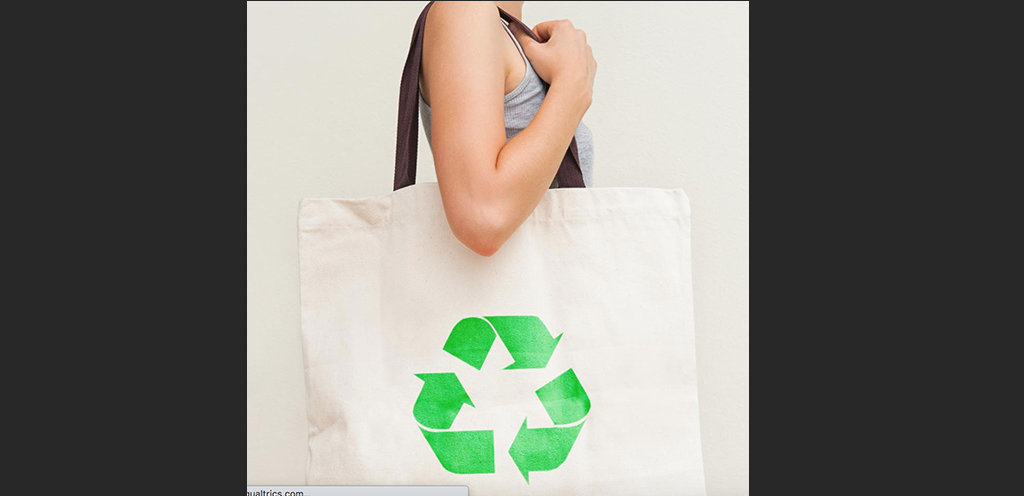<span style="color: #9e9e9e;">A new report from the Capgemini Research Institute, “Consumer Products and Retail: How sustainability is fundamentally changing consumer preferences*,” finds that sustainability has risen with consumers with 79 percent changing their purchase preferences based on social responsibility, inclusiveness or environmental impact.
Moreover, COVID-19 has increased consumer awareness and commitment to buying sustainably: 67 percent of consumers said they would be more cautious about the scarcity of natural resources due to COVID-19, and 65 percent said they would be more mindful about the impact of their overall consumption in the “new normal”.
Sustainability concerns are now influencing consumer behavior among more than half the population: 53 percent of consumers overall and 57 percent ages 18-to-24 switched to lesser-known brands because they were sustainable. More than half of consumers, 52 percent, said they share an emotional connection with products or organizations that they perceive as sustainable. Sixty-four percent said that buying sustainable products makes them feel happy about their purchases (this reaches 72 percent in the 25-to-35 age group).
The study further found consumers and retail organizations understand the benefits sustainability has on its relationship with consumers: 77 percent indicated sustainability leads to increased customer loyalty, while 63 percent said it increases brand revenue.
Gaps In Knowledge About Sustainability
Regardless, the study identified a gap between what consumers think they know, and what they actually know, about sustainability: 78 percent are not aware that it takes 1,000 liters of water to produce a chocolate bar, and 68 percent are not aware that an average burger results in more emissions than driving 0.62 miles. Nearly 68 percent of consumers who purchased products are willing to purchase a more sustainable product once they are aware of the sustainability issues. Capgemini said in the study that this highlights the need for more sustainability-related information to be available for consumers and reinforces the importance of brands driving the sustainability agenda.
A knowledge gap also exists among retailers and manufacturers who think shoppers know more than they do. Sixty-five percent of executives said their customers are very aware of their sustainability initiatives, but 49 percent of consumers said they do not have enough information to verify the sustainability claims of products, and 44 percent said they do not trust product sustainability claims.
Most Organizations Just Scratching The Surface Of Sustainability
Nearly 80 percent of organizations mention the impact on margins or cost overruns as a challenge in scaling sustainability initiatives and for almost three-in-four organizations, other issues take priority.
Three-out-of-four (75 percent) of consumer and retail organizations said they have a strategy, infrastructure and the resources in place to drive sustainability and circular economy efforts; however, when it comes to deploying company-wide initiatives that have an impact, less than one-quarter of organizations have managed this. Moreover, different facets of operations see different levels of success. The most commonly scaled initiatives are fair labor policies and safe working conditions with 48 percent of organizations claiming to have achieved scale in these areas. In contrast, sustainable IT, which involves reducing the impact of the digital footprint (such as energy efficiency in data centers), is being scaled by just 18 percent.
Moreover, despite COVID-19 bringing a renewed focus on the circular economy, just 18 percent of executives have invested in circular economy initiatives, and only 35 percent plan to invest in this area in the next three years.
Pia Heidenmark Cook, chief sustainability officer at Ingka Group, said, “I think a challenge that many organizations face is change management. A perception many organizations have is that sustainability is more expensive; however, they do not realize that initiatives like waste reduction or energy efficiency will reduce your operational costs. So, I would say, the key challenge that stands in the way of sustainability is change management — showing the business case, why it makes sense and influencing and inspiring people to understand why it makes a difference.”
Best Practices For Accelerating Sustainability
Capgemini’s report identifies four best practices for accelerating sustainability that organizations can emulate to drive sustainability programs for the long term:
- Educate consumers and empower employees to embed sustainable practices: Organizations must play a key role in highlighting the sustainability footprint of their products because consumer awareness of the environmental impact of many products is low.
- Position technology at the core of sustainability initiatives: It is important that organizations map technology use cases back to the broader sustainability goals of the organization to ensure a measurable return on investment.
- Deliver robust governance for sustainability: Robust governance helps an organization to scale its sustainability strategy across business units, oversee the objective-setting and reporting processes and strengthen relations with external stakeholders.
- Collaborate with the broader ecosystem for a larger impact: Sustainability-led collaborations within the internal network help to create a shared commitment across networks and alleviate the environmental and social impacts embedded in the supply chains of the sector.
“So far, many organizations have viewed sustainability as a bolt-on,” said Kees Jacobs, vice president, consumer goods and retail at Capgemini. “However, when baked into an organization’s mission and purpose, sustainability has the potential to entirely change an organization’s relationship with its customers and partners. The pandemic has heightened the global desire for authenticity and responsibility, particularly from large organizations. As businesses focus on transformation in the wake of the pandemic, they should put sustainability at the heart of their efforts.”
*The Capgemini Research Institute surveyed 7,500 consumers globally to understand their preferences, behaviors and expectations on sustainability. The Institute also surveyed 750 senior executives in various sub-sectors of consumer and retail organizations to gain more insights on maturity, priorities and outlook of sustainability.
To read a full copy of the report, click here. Photo courtesy Getty
















